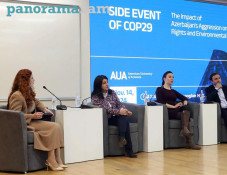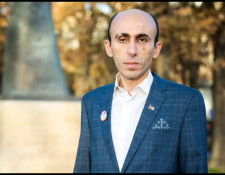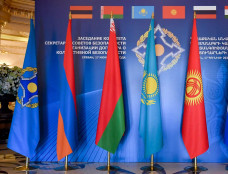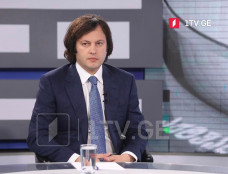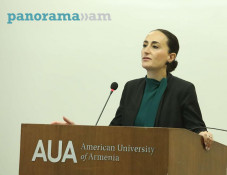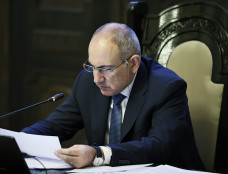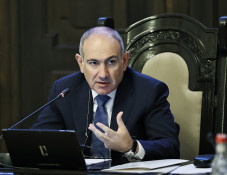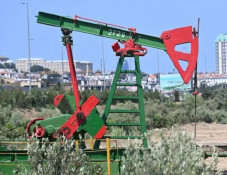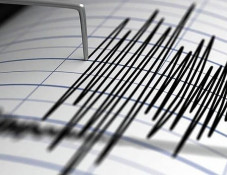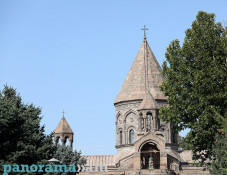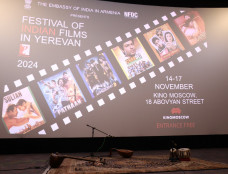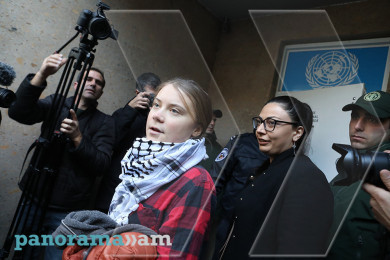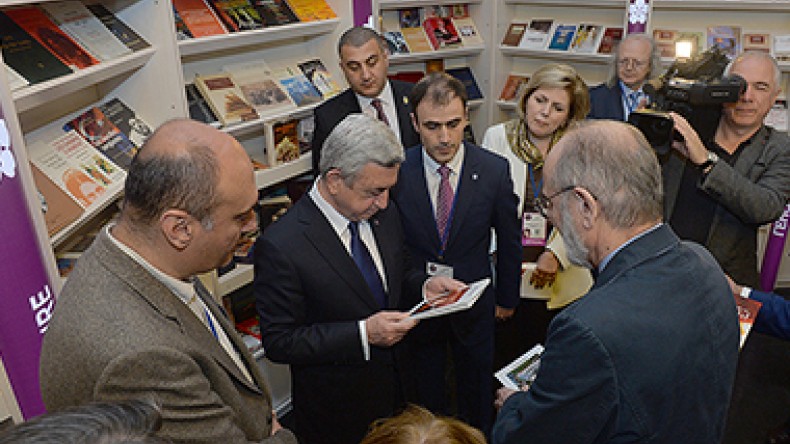
Armenian President tours book and photo exhibitions on Genocide as part of global forum
Today at Karen Demirchyan Sports and Concerts Complex Armenian President Serzh Sargsyan, Chairman of the State Commission on Coordination of the Events for the Commemoration of the 100th Anniversary of the Armenian Genocide, toured an exhibition by the National Library of Armenia, titled “The Armenian Genocide in Literature,” which is devoted to the Armenian Genocide Centennial.
The exhibition is being held from 22 to 23 April 2015 as part of the social and political global forum “Against the Crime of Genocide,” the President’s press office reports.
Out of around 3,000 literary, fiction, historical, analytical and journalistic books about the Armenian Genocide, the library presents more than 900 units of literature which have been translated into 23 languages in 37 countries of the world, focusing on different time periods.
While touring the exhibition pavilions, the President was informed that the exhibition displays books which are exclusive, being among the first to mention the Armenian Genocide, and present memories of famous foreign nationals, witnesses and their heirs, as well as their assessment of the tragedy. The books’ fiction and ideological content and the reliability of their sources have been praised across different time periods and the contribution of their authors to the recognition of the Armenian Genocide is invaluable.
Some of the book authors participating in the exhibition introduced and presented the Armenian President with their works.
Accompanied by His Holiness Karekin II, Supreme Patriarch and Catholicos of All Armenians, Thorbjørn Jagland, Secretary General of the Council of Europe, Luis Moreno Ocampo, the chair of the opening session of the global forum “Against the Crime of Genocide,” and Daniel Feierstein, President of the International Association of Genocide Scholars, the Armenian President also visited a photo exhibition titled “Genocide” which displays the works of the eight best photographers of the world pertaining to genocides, including the Armenian Genocide, as well as to violence which caused different conflicts and human tragedies. Among those photographers, who today continue to work in the most dangerous places of the world, is Jan Grarup, a famous photographer, whose works about the Rwanda and Darfur Genocides are considered as undeniable facts of those crimes.
The photographers popularize their works hoping that the terrific crimes against humanity reflected in them will never reoccur.
Newsfeed
Videos





